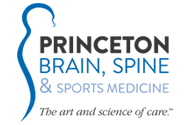Trigeminal
Trigeminal Neuralgia (Tic Douloureux)
World-Class Diagnosis & Treatment
Trigeminal neuralgia, also known as tic douloureux, is a chronic pain condition causing recurrent episodes of extreme, sporadic burning or electric shock-like pain. Pain typically occurs in the lower face and jaw, but it can affect the area around the nose and above the eye. In almost all cases, pain is felt on one side of the face, only. Though a tic douloureux episode only lasts a few seconds to a minute or two, the pain is excruciating and can be mentally and physically incapacitating.
Triggers & Causes of Trigeminal Neuralgia
Trigeminal neuralgia attacks are often triggered by vibration or contact with the cheek during shaving, brushing teeth, eating, drinking, talking or wind exposure. Attacks can worsen over time, with fewer and shorter pain-free periods between episodes. Some patients experience a tingling or numbing sensation in the face in the days preceding an attack.
Irritation of the fifth cranial nerve (the trigeminal nerve) causes this type of neuralgia. Neuralgia may arise as part of the aging process, but in some cases, it is associated with another disorder like multiple sclerosis or similar conditions that damage the myelin sheath nerve covering. The pain disorder most often affects people over 50, but it can arise at any age. It is more common in women than men, though reasons for this are unknown. There is some evidence that trigeminal neuralgia may be inherited due to a genetic pattern of blood vessel formation.
Nerve irritation may be caused by:
- Blood vessels pressing on the trigeminal nerve
- Growths or lesions at the base of the skull
- Tumors
Surgery & Gamma Knife Radiosurgery for Trigeminal Neuralgia
Surgery is useful for cases that do not benefit from medication.
The goal of surgery for trigeminal neuralgia is to relieve nerve pressure or reduce sensitivity by moving the blood vessel away from the trigeminal nerve. Microvascular decompression is the most commonly used surgical treatment for healthy people looking for the longest-lasting, least damaging option. Microvascular decompression relieves trigeminal neuralgia by placing a small pad between the trigeminal nerve and adjacent blood vessels. More than 80 percent of patients experience long-term pain relief with this solution and have normal face sensation after the procedure. Serious complications are rare, and there is a low chance of reoccurrence.
Gamma Knife radiosurgery delivers a high dose of radiation to the root of the trigeminal nerve, damaging the nerve and reducing or eliminating pain. Radiofrequency treatments relieve trigeminal neuralgia by damaging or destroying trigeminal nerve cells.
Renowned Expertise in Trigeminal Neuralgia Treatment
Princeton Brain, Spine & Sports Medicine is a leading U.S. provider of the Janetta procedure, the gold standard for trigeminal neuralgia treatment. Dr. Mark R. McLaughlin, MD, FACS, FAANS trained with Peter Janetta, MD—the father of modern microvascular decompression surgery for trigeminal neuralgia, hemifacial spasm, glossopharyngeal neuralgia and other cranial nerve rhizopathies. Working closely with Dr. Janetta in ongoing neuralgia research, Dr. McLaughlin was the lead author of the paper, “Microvascular decompression of cranial nerves: lessons learned after 4400 operations,” published in the Journal of Neurosurgery in January 1999.
Dr. McLaughlin has successfully treated trigeminal neuralgia for over 15 years, and PBSSM’s affiliation with leading research hospitals keeps our centers at the forefront of breakthrough treatment techniques for trigeminal, occipital and glossopharyngeal neuralgias.
If trigeminal neuralgia pain has become debilitating or you are experiencing reoccurrence after prior treatment, PBSSM can help. Call to schedule a diagnostic examination with Dr. McLaughlin: 215.741.3141 in Pennsylvania or 609.921.9001 in New Jersey. To request information about our neurosurgeons’ advanced spinal, cranial and neurosurgical care, contact PBSSM online. Our patient-focused practice is committed to your health, well-being and quality of life.
Additional Resources
What Causes Trigeminal Neuralgia? - Video by Dr. Mark McLaughlin
Request an Appointment
Submit an appointment request on our patient portal or contact our New Jersey and Pennsylvania campuses to speak with a patient advocate.
